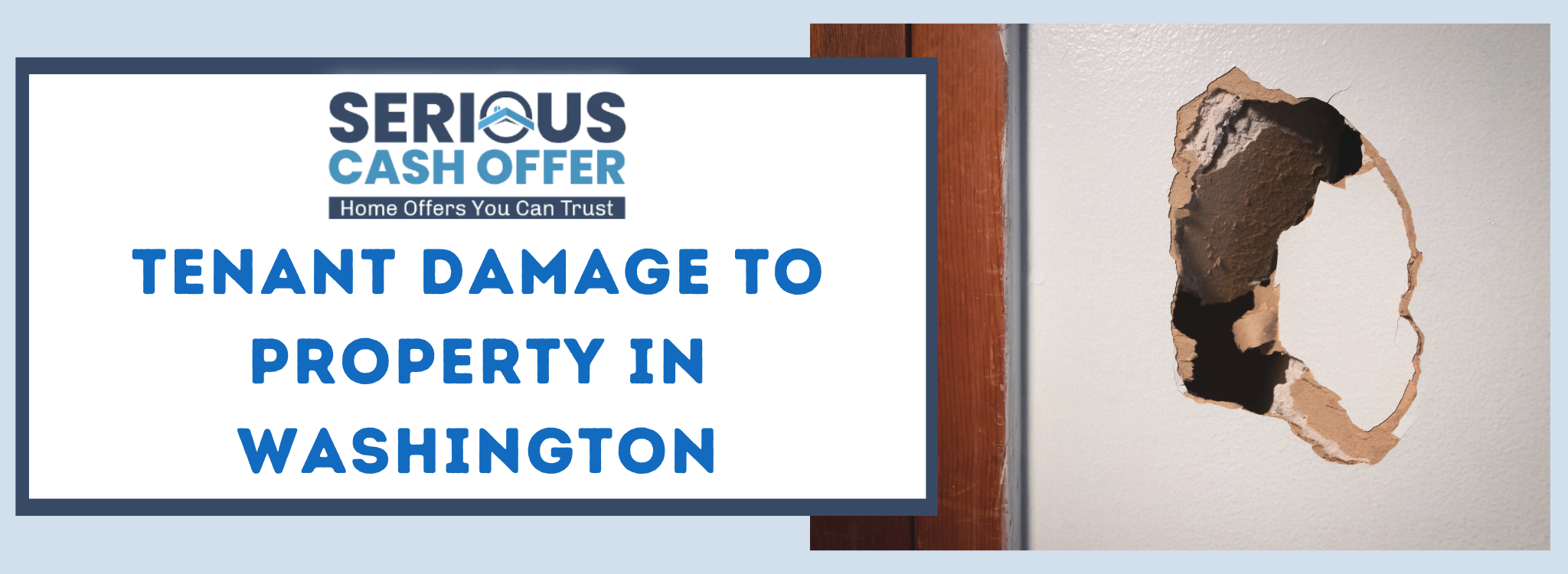
Property Maintenance Responsibilities
What are the landlord’s responsibilities for property maintenance in Washington?
In Washington, landlords must keep rental properties safe and livable. They follow landlord-tenant laws that outline repair responsibilities. Key duties include maintaining structural elements like roofs and walls in good shape and quickly fixing any housing code violations. Usually, landlords pay for repairs unless the tenant caused the damage due to neglect or misuse.
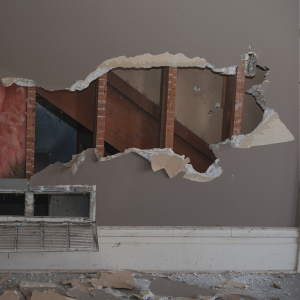
How can tenants contribute to maintaining the property?
Tenants in Washington significantly affect how well properties are taken care of. For example, they are in charge of regular care, like ensuring the property is clean and germ-free. Tenants must not damage the property and immediately tell the owner of any problems. This way of handling repair duties for renters in Washington stops minor problems from worsening.
What routine checks should be conducted to prevent damage?
You should check on it often to keep the property in good shape and avoid significant damage. Inspectors look for plumbing leaks, assess heating and cooling systems, and test electrical outlets as part of these checks. Making a report on the state of a property can help you keep track of possible problems and give you a starting point for future inspections.
Tenant Communication Strategies
How can landlords improve communication with tenants?
Good communication helps resolve landlord-tenant disputes in Washington. Landlords can improve communication by keeping an open dialogue and building a positive relationship with tenants. Using digital platforms for updates and maintenance requests can make communication easier and reduce misunderstandings.
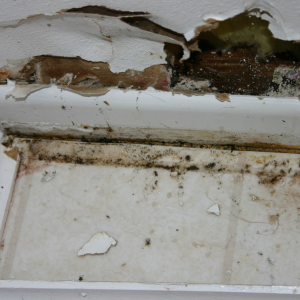
What should tenants report immediately to avoid further damage?
If tenants see any damage or problems that could worsen if not fixed, they should tell their owners immediately. Using a tenant notice to resolve these reports ensures proper tracking. Getting involved early can help you escape high costs and more property problems.
How can open communication help in resolving disputes?
In Washington, landlords and renters must be able to talk to each other freely to avoid and settle disagreements. Having open lines of contact makes it easier to mediate and negotiate, which can help people avoid expensive lawsuits. Clear expectations and regular check-ins help people understand and value each other.
Legal Implications of Property Damage
What are the legal steps if there is tenant-caused property damage?
If a tenant damages a property, landlords can take legal action in Washington. Resolving the issue may involve sending a formal repair demand, negotiating a settlement, or pursuing eviction through the courts. Keeping records of the damage and communication is crucial for any legal process.
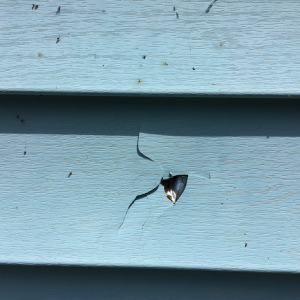
How does Washington law protect both landlords and tenants regarding property damage?
Washington rental laws offer strong protections for both landlords and tenants. Tenants have rights that protect them from being held responsible for pre-existing conditions, while landlords can recover costs for tenant-inflicted damages. Knowing these legal protections helps both parties understand their rights and responsibilities.
When should professional legal advice be sought?
In complex property damage cases, it’s wise to seek legal advice. A lawyer experienced in tenant damage disputes in Washington can guide you through legal procedures and represent your interests. Consulting a lawyer can often lead to quicker and more effective resolutions when done early.
Importance of Documentation
Why is thorough documentation crucial in rental agreements?
Keeping detailed records in rental agreements helps protect both landlords and tenants. It makes the terms clear so everyone knows their rights and duties. In Washington, a property condition report shows the state of the property before a tenant moves in. This document helps tell the difference between normal wear and actual damage, which can help avoid arguments over property conditions.
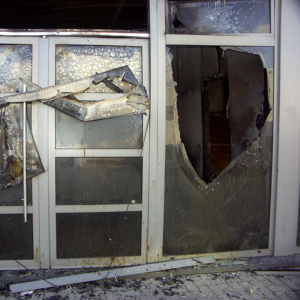
How should landlords document property conditions before and after tenancy?
Documenting property conditions needs a well-organized method. Landlords should scrutinize the property and create a property condition report in Washington before and after a tenant’s stay. Here’s how:
- Photos: Take clear, timestamped pictures of each room to show their condition.
- Documentation: Write down any damages or issues you find.
- Tenant Move-in Checklist Washington: Use a checklist to ensure you cover all details during inspections.
These steps help keep things transparent and fair, making it easier when tenants move in or out.
What tools can help document damages effectively?
Several tools can help with documenting property conditions:
- Photos: Good quality images serve as visual proof of any damage.
- Documentation Software: Digital platforms help you compile reports and keep records safe.
- Inspection and Reporting Tools: Apps for property management make creating detailed inspection reports easier.
Using these tools ensures that records are well-kept, which helps reduce conflicts.
To promote positive landlord-tenant dynamics and property upkeep across Washington, contact Serious Cash Offer about these effective practices.
Security Deposit: Rights and Uses
How is a security deposit used in case of property damage?
In Washington, a security deposit can cover costs from tenant-caused damage. If tenants neglect the property and repairs are needed, landlords can deduct the costs from the security deposit. These deductions might cover repair costs, tenant responsibility for damages, and cleaning fees after the tenant leaves. Precise records are essential to justify these deductions and avoid arguments.
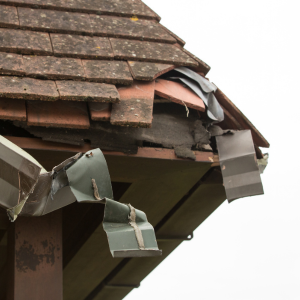
What are the rules for returning a security deposit in Washington?
Washington rental laws require landlords to return the security deposit within 21 days after a tenant moves out and list any deductions with receipts or estimates. Knowing the landlord-tenant laws in Washington helps landlords and tenants follow the rules and avoid legal issues involving property damage.
How can disputes over security deposit deductions be minimized?
To minimize disputes over security deposit deductions, clear communication and documentation are key:
- Tenant Rights Property Damage Washington: Teach tenants about their rights and duties regarding property damage.
- Documentation: Keep detailed records of all communications and inspections.
- Dispute Resolution: Set up a process to address concerns quickly and fairly.
- Proving Tenant Damage in Court Washington: In unresolved disputes, having good documentation can help in legal cases.
By promoting openness and understanding, landlords and tenants can handle security deposit matters better and maintain good relationships.
Insurance Options for Landlords and Tenants
What insurance options are available for landlords in case of tenant damage?
Landlords in Washington state can choose from various insurance coverage to safeguard their properties from tenant damage. Landlord insurance covers repair costs if a renter causes damage. Landlords should examine their policies to verify their property damage liability coverage for rental properties in Washington.
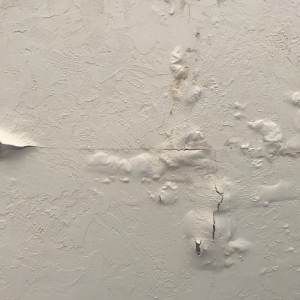
How does renters insurance protect tenants from liability?
Renters insurance is crucial for tenants in Washington because it offers protection against liability claims. This insurance covers personal belongings and helps protect tenants from legal action if they accidentally damage the rental property. Having tenant liability insurance gives tenants peace of mind and financial security in unexpected situations.
What should landlords and tenants discuss regarding insurance coverage?
Landlords and tenants should discuss insurance. The rental agreement’s damage clause, tenant legal obligations, and how tenants will pay for damages are essential. To avoid problems and fulfill their commitments, all parties must comprehend the lease provisions regarding property damage.
Handling Disputes over Property Damage
What are the best practices for resolving disputes amicably?
Clear communication is essential to resolve tenant damage disputes in Washington. Reviewing Washington rental laws on property damage and using mediation can help. These practices support landlord-tenant dispute resolution by promoting cooperation and fair outcomes.
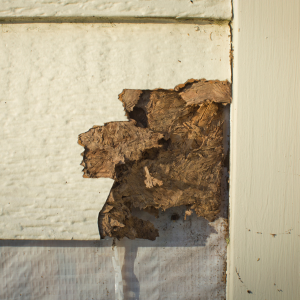
How can mediation assist in landlord-tenant disputes?
Mediation helps landlords and tenants resolve concerns in a neutral atmosphere, including rental agreement violations and property damage. In Washington, landlords and tenants choose mediation because it encourages open conversation and can resolve issues without lengthy legal proceedings.
What role does the small claims court play in resolving these issues?
When landlords and tenants in Washington cannot settle property damage disputes through mediation, they may take the case to small claims court. Landlords and tenants can take their issues to court, showing tenant harm and meeting legal requirements. Understanding the small claims court process might assist both parties in reaching a legal resolution.
Effective Use of Property Inspections
Conducting regular property inspections is key to maintaining rental properties in Washington. These inspections can identify property damage early and define the responsibilities of both landlords and tenants.
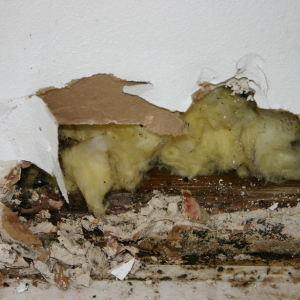
How often should property inspections be conducted?
Landlords or property managers should perform property inspections every six months. The schedule allows landlords to settle complaints quickly while maintaining tenant privacy. To avoid confusion, landlords should mention inspection dates in the rental agreement. Landlords in Washington must provide notice before entering for repairs or periodic inspections. Tenants are responsible for facilitating inspections.
What should landlords look for during inspections to prevent significant repairs?
Landlords should watch for potential property damage during inspections and consider preventive actions. Important areas to inspect include:
- Structural integrity: Check for cracks or signs of wear.
- Plumbing and electrical systems: Look out for leaks or faulty wiring.
- Unauthorized alterations: Ensure no changes were made without approval, which might indicate tenant negligence.
Catching issues early can lower repair costs and clarify tenant responsibilities for damages.
How can inspections help maintain good landlord-tenant relationships?
Property inspections are crucial for keeping good ties between landlords and tenants. Let’s discuss what we find during checks so there are no arguments. Providing feedback and working together on issues that bother them will make tenants more responsible and help both sides improve conflict resolution. Ensuring clear communication and fair agreements is essential in Washington rental markets.
Encouraging Tenant Accountability
Getting tenants to take responsibility is essential for lowering property loss and associated costs. Tenants in Washington can be more responsible if they know the rules and follow them consistently.
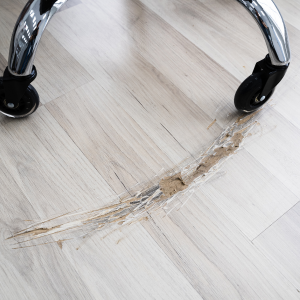
How can landlords encourage tenants to take responsibility for damages?
Landlords can increase tenant accountability by:
- Education: Tell inmates what repairs they must make and what the law says they must do in Washington.
- Preventive Measures: Advice on ways to reduce rental property damage.
- Legal Recourse: Explain the consequences for not meeting responsibilities, including possible legal actions.
What policies can be implemented to reduce negligent or intentional damage?
To lessen the damage, landlords in Washington can:
- Include a detailed damage clause in the rental agreement outlining consequences for tenant negligence.
- Use security deposit deductions for repairs.
- Implement property management policies that emphasize regular mediation and clear tenant expectations.
How can positive reinforcement play a role in tenant accountability?
Positive feedback can help landlords and tenants get along better. Tenants may be more likely to take good care of the property if rewarded or recognized for being responsible. This way of thinking supports methods for paying tenants and promotes good rental agreements.
By applying these practices, Serious Cash Offer aims to foster better landlord-tenant dynamics and ensure well-maintained properties across Washington.
Preventive Measures and Best Practices
What preventive measures can reduce potential property damage?
In Washington, using preventive strategies is key to reducing tenant damage and keeping a property’s condition in good shape. Important steps include:
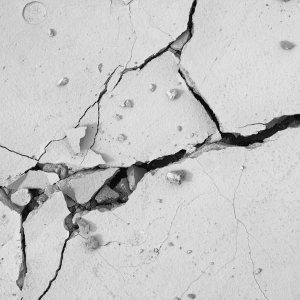
- Preventive Maintenance: Regularly check essential systems like plumbing, heating, and electrical to find issues early.
- Regular Inspections: Conduct inspections at set times to catch and fix minor problems before they get worse.
- Responsible Tenancy: Encourage tenants to act responsibly by reporting minor issues immediately.
How important is a well-drafted rental agreement in preventing disputes?
An explicit rental agreement is crucial for preventing disputes between landlords and tenants. It should include:
- Lease Clarity: Ensure every lease part is clear to avoid misunderstandings.
- Dispute Prevention: Add clauses that address possible areas of conflict.
- Legal Protection: A strong rental agreement offers legal backing if disputes arise.
What role does tenant education play in maintaining property conditions?
Educating tenants is vital for maintaining the property’s condition. Tenant education includes:
- Tenant Workshops: Host workshops on property care guidelines and tenant responsibilities.
- Educational Resources: Provide materials that highlight best practices for upkeep.
- Proactive Communication: Keep open lines of communication to encourage timely issue reporting.
Consequences of Negligence
What consequences do tenants face for failing to report damage timely?
In Washington, failing to report damage promptly can lead to several consequences for tenants:
- Reporting Obligations: Tenants must report issues to prevent further damage.
- Repair Delays: Delayed reporting increases repair costs and can lead to eviction risks.
- Legal Ramifications: Not following lease terms can lead to legal actions.
How does negligence impact security deposit returns?
Negligence can significantly affect the return of a security deposit. Important points include:
- Security Deposit Deductions: Landlords might deduct money for repairs caused by negligence.
- Negligence Penalties: Failing to maintain the property can result in penalties.
- Return Disputes: Tenants may face disputes over deductions based on damage assessment.
What can landlords do to address repeated negligence by tenants?
Landlords facing repeated negligence can take several actions:
- Negligence Policies: Set clear policies about consequences for repeated negligence.
- Corrective Action: Implement strategies like requiring tenants to attend workshops.
- Tenant Agreements: Update agreements to include stricter clauses about tenant care.
- Communication Strategies: Use proactive communication and legal advice to ensure tenants understand their duties.
Using these strategies, Serious Cash Offer helps landlords and tenants manage properties effectively, ensuring long-term satisfaction and property integrity.
FAQs:
What should I do if a tenant causes property damage in Washington?
If your tenant damages your property, take photos and note the damage. Do a move-out inspection to see what needs fixing and how much it will cost. Check the lease to know what the tenant should pay for. You might need to take repair costs from their security deposit or discuss payment options.
Can a tenant withhold rent for necessary repairs in Washington?
Tenants in Washington can sometimes refuse to pay rent until landlords make essential fixes, but they must follow the law. They must wait fairly and write to the landlord about the necessary repairs. If landlords don’t complete the repairs, tenants should check local rules or consult a lawyer before withholding rent.
How should unauthorized alterations by a tenant be handled?
If a renter makes changes without your permission, look at the lease to see what they can do. Talk to the renter about taking back these changes. That depends on the terms of the lease. You could charge them to return things the way they were.
What counts as normal wear and tear versus tenant-caused damage?
Daily wear and tear, like faded paint or loose handles, results from everyday use. Tenant-caused damage, like broken windows or holes in walls, results from carelessness. Explain these differences in the lease and check the property regularly.
Are cleaning fees after a tenant moves out their responsibility?
If the tenant leaves the place dirty beyond normal wear and tear, you can deduct cleaning fees from their security deposit. Having cleaning rules and fees in the lease is a good way to avoid problems.
How is tenant liability for black mold handled in Washington?
Tenants in Washington should prevent mold by keeping places aired out. If a tenant finds black mold, landlords must check and fix things quickly. The lease should clearly state who deals with mold problems.
What are a landlord’s rights regarding property damage claims in Washington?
Landlords can ask tenants to pay for damage beyond normal wear and tear. If damages exceed the deposit, they can use the tenant’s security deposit or take them to small claims court. Keep good records and communicate clearly to back up claims.
When can a landlord legally enter a rental property for repairs?
In Washington, landlords must give a 48-hour written notice before entering a rental for repairs, except for emergencies. List entry rules in the lease and communicate clearly with the tenant about when you’ll come to ensure you follow state laws.
Key Insights
- Tenant damage in Washington includes things like unauthorized changes and neglect. Rental property repair laws in Washington explain the responsibilities of both tenants and landlords.
- Tenants are responsible for damage beyond normal wear and tear, which is different from regular use. Knowing about tenant liability for damage in Washington can help avoid future problems.
- Tenants who damage property can take it to small claims court in Washington, where they or their landlords can ask for repair costs and related expenses.
- Using a detailed inspection checklist during tenant move-in and move-out helps clarify any tenant property damage in WA.
- Landlord rights in Washington include making needed repairs and taking damages from the security deposit as long as the tenant’s damage exceeds normal wear and tear.
- If tenant negligence occurs, landlords can file damage claims in Washington. This might involve mediation or court action if necessary.
- Tenants should be aware of their financial duties, including paying back for unauthorized repairs or illegal changes to rental properties in Washington.
- Lease agreements should clearly state tenant obligations and possible liabilities to avoid misunderstandings about tenant property damage in Washington.
These details apply to the entire state of Washington State, including cities like Spokane, Tacoma, Longview, Seattle, and Seatac, as well as their surrounding areas. If you require extra assistance or have particular inquiries, please contact us at (206) 312-1920. Please see our website, Serious Cash Offer, for more information and complete descriptions of our services.


